Lower Saxony – Scotland
Tandem Fellowship Programme

3
Fellowship rounds
30
Fellows
15
Academic Collaborators
The Lower Saxony – Scotland Tandem Fellowship Programme presents an exceptional opportunity for doctoral students and postdoctoral researchers to engage in collaborative research at esteemed higher education institutions in both Lower Saxony and Scotland.
The programme places great emphasis on promoting internationalisation and fostering competence development. It facilitates cross-border cooperation in science and research, bolstering the reputation of both regions as producers of excellent knowledge within the European context, while forging stronger connections between participating institutions.
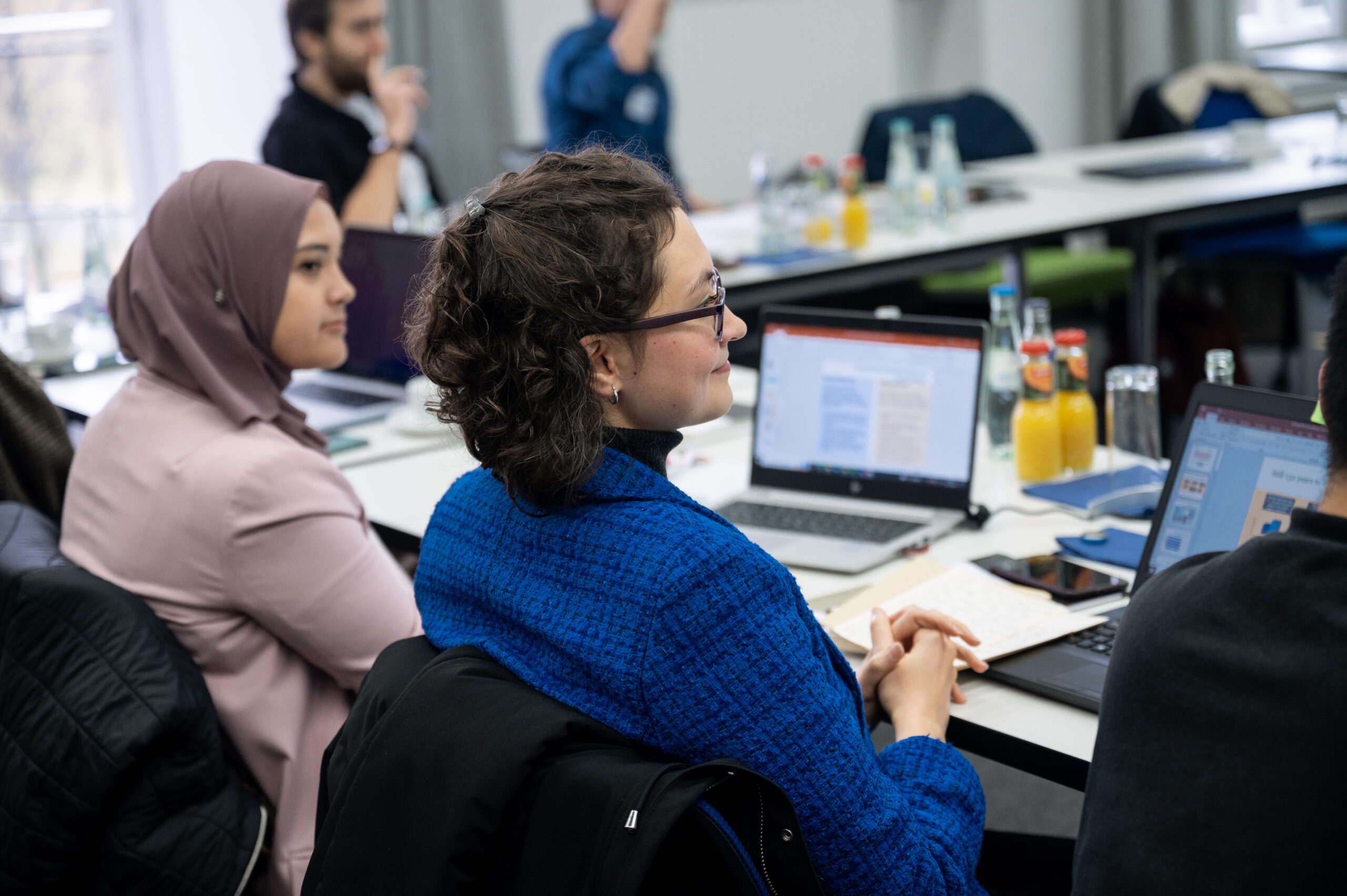
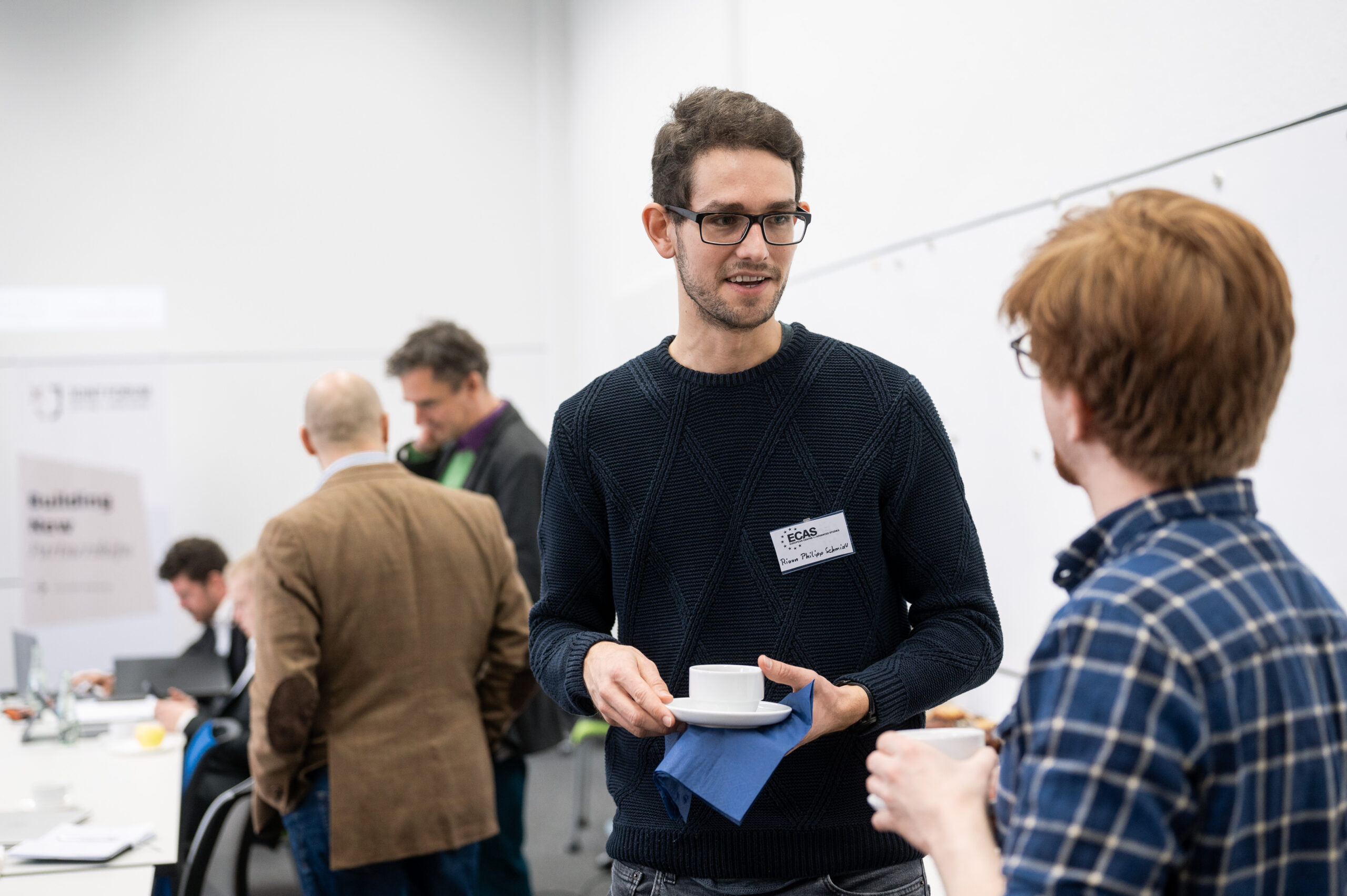
Learn more about the two types of fellowships:
Fellowships for Postdoctoral Researchers:
These fellowships are designed for tandems of postdoctoral researchers who have obtained their doctoral certificates no more than ten years prior to the publication of the respective open call.
Fellowships for Doctoral Students:
This fellowship category is aimed at doctoral students, with no restrictions regarding the timeframe or duration of their doctoral studies prior to applying for the programme.
As the specific details of each call for proposals may vary depending on the targeted applicants, we recommend thoroughly reviewing all sections and documents to access tailored information for the call that aligns with your circumstances and interests.
The application period for the next fellowship phase (1 July 2024 – 31 December 2024) opens on 15 April 2024. Proposals are invited from tandems of either postdoctoral researchers or doctoral students. The relevant open calls, application forms and further details on the process, workshops and more can be found below.
Open Call
Published on 15 April 2024
Application Phase
15 April 2024 – 15 June 2024
Workshops / Information Sessions
30 April 2024 + 15 Mai 2024 via Zoom
Matchmaking
tailored individually
Selection
15 June 2024 – 30 June 2024
Fellowship Phase
1 July 2024 – 31 December 2024
Roundtables
2-3 per fellowship phase
Fellow Conference
4 + 5 November 2024 at Osnabrück University
Final Report
1 working paper per tandem
Workshops
During each application period, ECAS offers and hosts several Digital Workshop Sessions on all current open calls. These sessions are a unique opportunity for all researchers interested in international projects across the North Sea, as well as for academic staff and international services to learn more about the development of the programme and other ECAS activities.
You are welcome to join one of the upcoming Information Sessions:
Tuesday, 30 April 2024, 3 pm CEST
Zoom link
Wednesday, 15 May 2024, 3 pm CEST
Zoom link
Matchmaking
If our applicants are experiencing difficulties in identifying potential partner universities and researchers, the ECAS team is happy to arrange individual consultation sessions to provide tailored support during the search process. For more information, please contact our team at fellowship@ecas-academia.org.
Roundtables
Throughout each fellowship phase, the ECAS team organises several digital get-togethers for the current beneficiaries of the programme. The purpose of these sessions is to provide a space and platform for the fellows to meet and greet in a less formal setting and to encourage academic and personal connections across the fellowship network.
Fellow Conference
Each year our new fellows have the opportunity to introduce themselves and their projects to the international academic network brought together by the ECAS team at the Fellow Conference. The event is organised in a hybrid format over two days and takes place each year at a different participating higher education institution in either Lower Saxony or Scotland.
Tandem Fellowship Network on Facebook
We invite all current and future fellows to join the Tandem Fellowship Network on Facebook! The group serves as an essential communication tool, not only to provide you with important information about the Lower Saxony – Scotland Tandem Fellowship Programme, but also as an interaction platform for the community of fellows. You will have ample opportunity to connect with other researchers as well as exchange experiences and inspiring ideas.
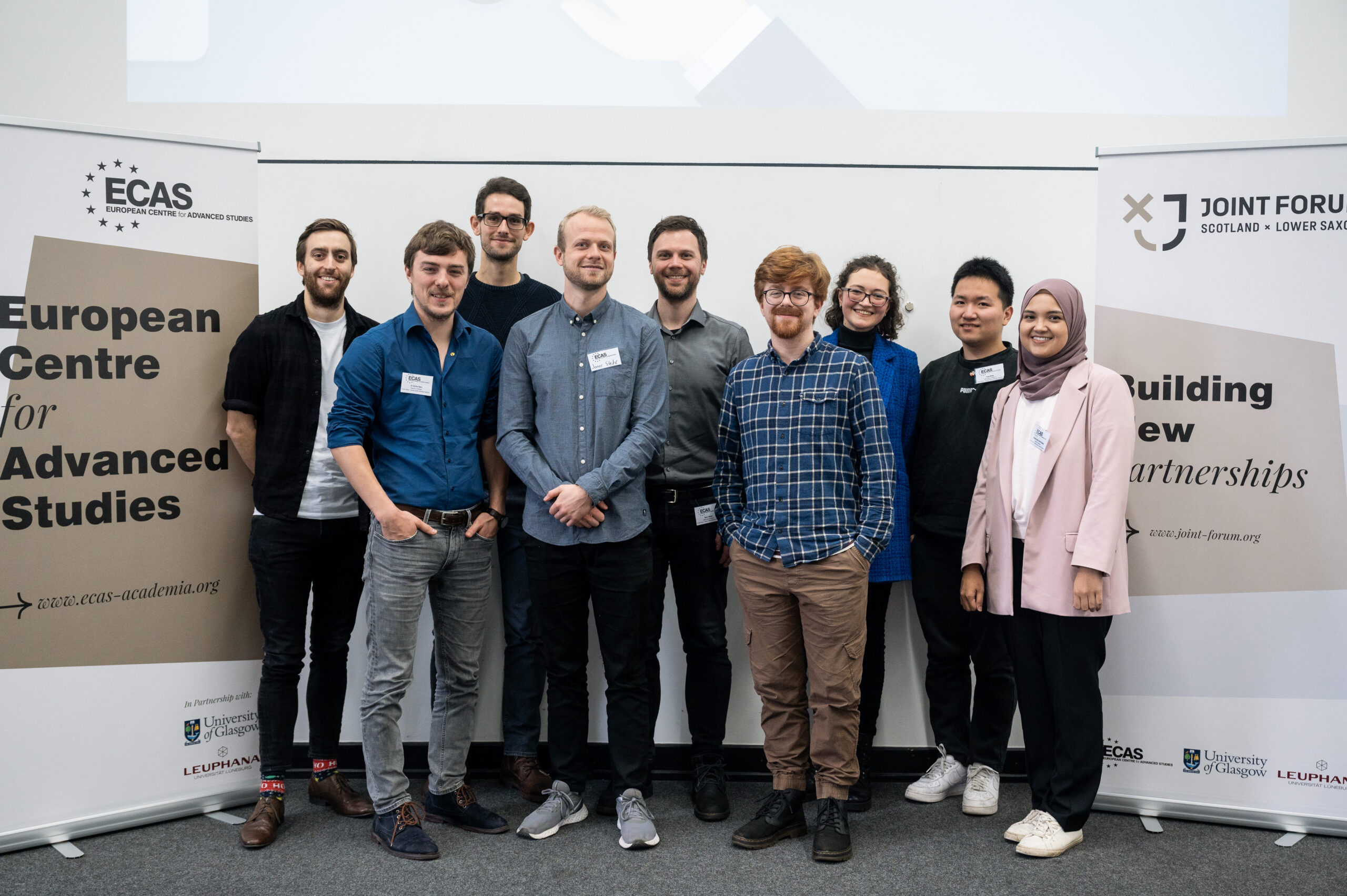
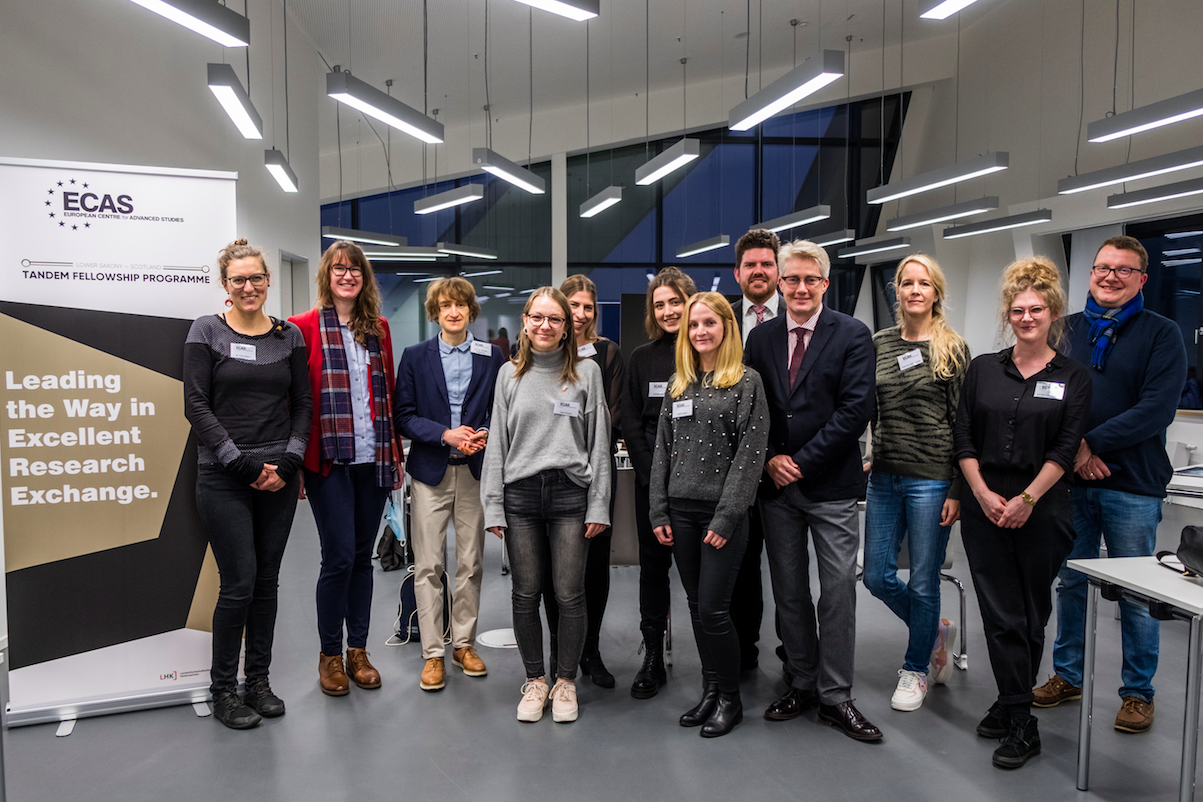
FUNDING
The programme is funded by the Ministry of Science and Culture of Lower Saxony (MWK) and supported by the participating Scottish universities in an accompanying capacity, including logistical and technical support and the provision of an academic staff member.
The fellowship of up to 1,400 Euro per month is paid for the time each fellow spends abroad at their tandem partner’s institution. The funding is intended to support each researcher during their stay abroad, which can be planned and divided into shorter individual stays throughout the duration of the whole fellowship.
During the stay, the tandems can intensify their collaboration by working on the joint project, presenting concrete results and possibly preparing an application for third party funding.
ELIGIBILITY
Project proposals are invited from tandems consisting of either two postdoctoral researchers or two doctoral students. Within each tandem, one fellow must come from a higher education institution in Lower Saxony and one from a corresponding institution in Scotland. Important: Postdoctoral researchers must have an employment contract for the duration of the proposed fellowship with a HEI in Lower Saxony or Scotland.
ADMISSION AND DOCUMENTS
All proposals must be submitted in English using the application form available on our website. Each tandem partner must complete and submit a separate application form (including all required documents) by email to: fellowship@ecas-academia.org. There are no restrictions on the choice of topic or subject.
Please bear in mind that your application will be assessed by all members of the selection committee, who may or may not have advanced or limited knowledge in your particular field. Proposals should therefore be comprehensible and, where possible, written in terms accessible to the educated non-expert.
SELECTION CRITERIA
The selection is made according to the following criteria:
I Impact on Lower Saxony, Scotland & Society (20%)
II Excellence, Quality & Academic Output (40%)
III Feasibility (20%)
IV Sustainability (20%)
Please note the percentage distribution of each individual criterion indicated in brackets at the end of all the individual criteria listed above.
Important: Please refer to all criteria in your application form (section: Project Description) and demonstrate how exactly your project meets and fulfils each individual selection criterion.
DEADLINE and TIMELINE
The current application period: 15 April 2024 – 15 June 2024
PARTICIPATING HIGHER EDUCATION INSTITUTIONS
All currently participating higher education institutions from Scotland and Lower Saxony are shown on the map above. For further information (including contact details for the individual universities and their faculties), please see the Academic Matching Tool.
SELECTION COMMITTEE
Each member of the Selection Committee for the Lower Saxony – Scotland Tandem Fellowship Programme represents a different field of research and offers a unique insight into their area of expertise. The aim of such an interdisciplinary committee is to fairly evaluate the merits of each applicant and identify the most suitable projects for the programme.
Prof. James Conroy
James Conroy is Professor of Religious and Philosophical Education (Pedagogy, Praxis & Faith) and Vice Principal (Internationalisation) at the University of Glasgow. He also serves as the Academic Director of ECAS. Prior to his appointment as Vice Principal, Prof. Conroy was Dean of the School of Education. From 2013 to 2021, he was appointed Dean of Global Engagement for Europe at the University of Glasgow.
Prof. Gwyn W. Gould
Gwyn Gould holds the post of Professor of Cell Biology in the Strathclyde Institute of Pharmacy and Biomedical Sciences at the University of Strathclyde which he joined in 2019. Prior to this, he held chairs in Membrane Biology and in Cell Biology at the University of Glasgow, where he began his independent research career in 1989. Since his postdoc at Dartmouth College, Gwyn has studied aspects of the control of membrane trafficking by insulin. Since moving to Strathclyde, this has seen a growing emphasis on using biophysical and novel imaging
approaches to study the behavior of glucose transporters, and understanding how this is changed in metabolic diseases like diabetes. His work uses molecular, genetic, cell biological and biophysical methods in a multidisciplinary approach to understanding a problem of pressing medical need.
Prof. Simone Pika
Simone Pika is Professor for Comparative Cognitive Biology at the University of Osnabrück. She earned her PhD from the Westphalian Wilhelms-University of Münster and the Max Planck Institute for Evolutionary Anthropology in Germany. This was followed by positions as postdoctoral fellow at the University of Alberta in Canada, the University of St Andrews in Scotland, and Assistant Professor at the School of Psychological Sciences at the University of Manchester in England. In 2010, Prof. Pika was awarded with a Sofja-Kovalevskaja award of the Alexander von Humboldt Foundation and in 2017 with an ERC-Consolidator Grant of the EU.
Prof. Jörg Philipp Terhechte
Jörg Philipp Terhechte is Professor of Public, European and International Law at and Vice President of Leuphana University of Lüneburg as well as a lecturer at the University of Glasgow. He also holds the position of the Academic Director of ECAS. Since 2021, he is a visiting professor at the University of St Andrews.
Prof. Neville Wylie
Neville Wylie is Deputy Principal (Internationalisation) and Professor of International History at the University of Stirling. He graduated in Medieval and Modern History from the King’s College London. Subsequently, he transferred to the University of Cambridge where he gained his MPhil in International Relations (1990) and a PhD in International History (1994).
Moritz Dütemeyer (In an advisory capacity)
Moritz Dütemeyer holds the esteemed position of deputy Head of Unit for European and International Affairs at the Ministry of Science and Culture for Lower Saxony (MWK) since December 2022. His previous professional experience includes being entrusted with the role of Head of the Minister’s and State Secretary’s office in the MWK. From 2014 to 2020, he was an adviser on Foreign and Constitutional Affairs at the European Parliament in Brussels and Strasbourg.
DATA PROTECTION
The application documents remain with ECAS and become its property. The applicants’ data will be stored in accordance with the German Federal Data Protection Act and the EU Data Protection Regulation, insofar as they are necessary for processing the application or the fellowship. The documents of unsuccessful applicants will be deleted and destroyed after a reasonable period of time.
MISCELLANEOUS
- If you do not yet have a partner, but wish to submit an excellent project idea, ECAS will support you prior to the deadline in identifying suitable partner institutions in Lower Saxony or Scotland.
- ECAS reserves the right not to consider incomplete applications. The applicants are responsible for the timely submission of complete documentation.
FAQ
GENERAL for all applicants
1. APPLICATION
Who may apply for the fellowship programme?
The Tandem Fellowship Programme is open to postdoctoral researchers, who:
-
-
- are citizens or permanent residents of an EU Member State or the United Kingdom (should you need a residence permit for the research stay in the other region, you must obtain it yourself),
- are employed at a Lower Saxonian or Scottish higher education institution.
- obtained their doctorate no more than 10 years prior to the current fellowship round.
-
The Tandem Fellowship Programme is open to doctoral students, who:
- are citizens or permanent residents of an EU Member State or the United Kingdom (should you need a residence permit for the research stay in the other region, you must obtain it yourself).
Can we (as a Tandem) apply with any chosen subject area?
Yes, the programme is open to all subjects and explicitly promotes interdisciplinary research approaches.
How do I proceed if I am lacking a tandem partner?
ECAS is happy to help you find a suitable tandem partner. Please contact us in this regard in due time before the respective application deadline.
Do I need to obtain and submit a language certificate?
A language certificate is not compulsory for this programme, even though the English language skills will be indispensable for conducting the project. The Selection Committee will assess your language skills based on the quality of your application.
Do I have to submit my certificates as originals or certified copies?
No, please submit only simple copies (scans) of your certificates.
Parts of my application documents are in German. Can I submit the application partly in German language?
No, if you do not have a translation, please translate the documents yourself and then submit the document in both language versions.
Do both my tandem partner and I have to complete and submit Annex 4 of the application form?
It is sufficient if only one of the tandem partners sends a copy of the completed Annex 4, while the other partner clearly indicates in their correlated application that the said attachment is included in the application of their partner. Please note that Annex 4 is the only part of the application form that can only be submitted exclusively by one of the tandem partners. All other documents and attachments must be submitted individually by both tandem partners.
Who should be the academic collaborator proposed in the application?
You must propose an academic who will be available to you and your project in an advisory capacity as an academic collaborator. This person must be employed at a participating Scottish institution, although not necessarily at the home institution of the Scottish tandem partner. As the main tasks of the academic collaborator are to support the content of your project and to introduce the tandem to the research network, we recommend that you propose a person from your research environment.
Please note that an academic collaborator is not your tandem partner. It is a person who will supervise your project in case you need support of this kind.
2. SELECTION PROCESS
Can I receive this fellowship as a holder of another funding programme?
No, in principle not. However, there are grants that may be compatible with the Lower Saxony – Scotland Tandem Fellowship Programme. Please send us an email explaining the premise and regulations of other funding in question at: fellowship@ecas-academia.org. We can only provide information about possible compatibility or lack thereof on a case-by-case basis.
Who makes final decisions regarding the acceptance of rejection of submitted applications and how is the selection justified?
ECAS has convened an interdisciplinary Selection Committee with an excellent expertise, which thoroughly reviews each individual application and decides on the awarding of the fellowships. (For more information see: “Selection Committee”).
The variety of selection criteria, their weighting among each other and the guarantee of confidentiality of the decision-making process in the Selection Committee means that the decisions cannot be explained in detail to the applicants. However, we may provide you with a written breakdown of the assessment of your application after the decision has been made.
Will there be any personal interviews conducted as part of the application and selection process? What does a personal presentation to the Selection Committee look like?
The Selection Committee is free to invite applicants for interviews, should this be necessary. An interview usually takes place as an online video conference, and its main premise is to give the committee the opportunity to ask questions about your application. Should an interview be required, the invitation will be sent out in good time so that you can save the date accordingly.
3. BEFORE YOU TRAVEL
Do I need a visa for a stay abroad in Germany or the UK?
Please make sure that all documents required for your entry and planned stay have been applied for in advance and are available before your departure. We advise you to contact your host institution for further assistance and support in your individual case.
The ECAS Post-Brexit Information Hub may provide answers to some of your questions on this topic.
Do I need to enroll at my host university in Germany or the UK for my research stay?
To ensure a smooth and successful research stay, we advise you to directly contact your host university to inquire about any necessary actions you need to take before your arrival. They will be able to provide you with specific information regarding the enrollment procedure (if needed) and any other requirements. For research stays in the UK, we recommend reaching out to your academic collaborator or your tandem partner’s supervisor, as they might be able to offer valuable guidance and support during the process.
Who is in charge of the health, accident and personal liability insurance?
Insurance is not included in the fellowship benefits. Please take out insurance at your own expense, should you need it.
Can I be accompanied by my family during the research stay?
Your family can travel with you. Your host institution – if informed in due time – may be able provide assistance regarding their stay abroad. However, please contact the relevant offices yourself well in advance of your trip in order to plan your family’s stay in the host region. No additional financial support for your family to accompany you during your research stay abroad is provided as part of the fellowship.
4. RESEARCH STAY ABROAD
How long can the whole joint fellowship be?
The maximum duration of the currently offered fellowship extends over the period of the following six months: 1 July 2024 – 31 December 2024.
How much time can each fellowship holder spend at their tandem partner’s institution abroad?
Your research stay can be continuous or split into shorter stays, depending on your individual schedule and the timeline of your project.
Example: You are a researcher from the Leuphana University Lüneburg with a tandem partner at the University of Glasgow. You apply for the Tandem Fellowship Programme with the intention to spend a total of four months researching in Scotland at your partner’s institution. As it mightbe difficult for you to relocate for four consecutive months, you decide to divide the planned stay abroad into shorter sections spread over the duration of the entire fellowships as follows: Travel A: 1 July 2024 – 31 July 2024 and Travel B: 1 October 2024 – 30 November 2024.
How high is the monthly grant?
The monthly fellowship amounts to a lump sum of 1,400 Euro per fellow, which compensatesfor additional expenses for the stay at the other location. If the period of the stay abroad does not extend over exactly one or more months (due to a short stay or the split up of the stay abroad) the fellowship will be granted on a pro-rata basis for the incomplete month. Unfortunately, it is not possible to increase the fellowship rate to cover individually justified additional needs (e.g. for families). It is also not possible to apply for individual benefits such as visa fees.
5. DURING YOUR FELLOWSHIP
What happens in case I get sick before or during my fellowship stay and am not able to
go to the host institution or work on the project?
Please inform ECAS immediately at: fellowship@ecas-academia.org. We will do our best to find a solution.
What happens if I cannot travel at the submitted and approved time and would like to postpone my stay? What if I have to cancel my research stay completely?
We are well aware that managing schedules with different professional and personal factors can be difficult and challenging. Therefore, we are always available to discuss your options individually. In any case, please inform ECAS immediately at: fellowship@ecas-academia.org.
What happens if my tandem partner is withdrawing from the programme?
This depends on when your tandem partner withdraws. If you are able to find a suitable replacement and this is approved by the Selection Committee, you may be able to continue working on your project within the frames of the fellowship. In any case, please contact ECAS immediately to discuss your options: fellowship@ecas-academia.org.
What happens if my partner and I fail to set up a research project as a result of the fellowship?
The implementation of the research project is a precondition for the granting of the fellowship. Please consider the agreements of the fellowship contract.
What happens to my teaching obligation during my research stay?
Please talk about the details with your home institution and determine individually how any obligations will or will not continue to be fulfilled. However, the essential requirement is that these obligations do not jeopardise the research project supported by the fellowship in any way.
I would like to get a part-time job abroad and earn extra money on top of my fellowship grant. Is this possible and will the salary count towards the fellowship?
Please indicate any additional jobs in the host region to ECAS. The prerequisite is that the secondary employment does not interrupt the research project supported by the fellowship in any way.
Additional information for the POSTDOCTORAL RESEARCHERS
The admission criteria state that the dissertation may not date back more than ten years. From what exact point in time is this date counted?
This depends on the publishing of the respective open call. The general rule is that you should have obtained your doctoral certificate ten years prior to the said publication date. For example, if the respective open call for the postdoctoral researchers was announced in November 2022, we will count ten years back to November 2012.
I had my viva voce, however have not yet received my doctoral certificate – can I still apply?
Yes, you can still submit your application. However, you must have successfully defended your dissertation by the deadline of the respective call. If this is the case, please state this in your application and put forward a confirmation from your institution that you will be awarded your doctorate. Please submit your certificate as soon as you receive it.
CONTACT
If you have any questions about the above or require more general support regarding the programme and application process, please contact Karolina Michniewicz (ECAS Academic Coordinator) at:
E-Mail: michniewicz@ecas-academia.org or fellowship@ecas-academia.org
Phone: +49 152 3897 3666 or +49 4131 677 1913
